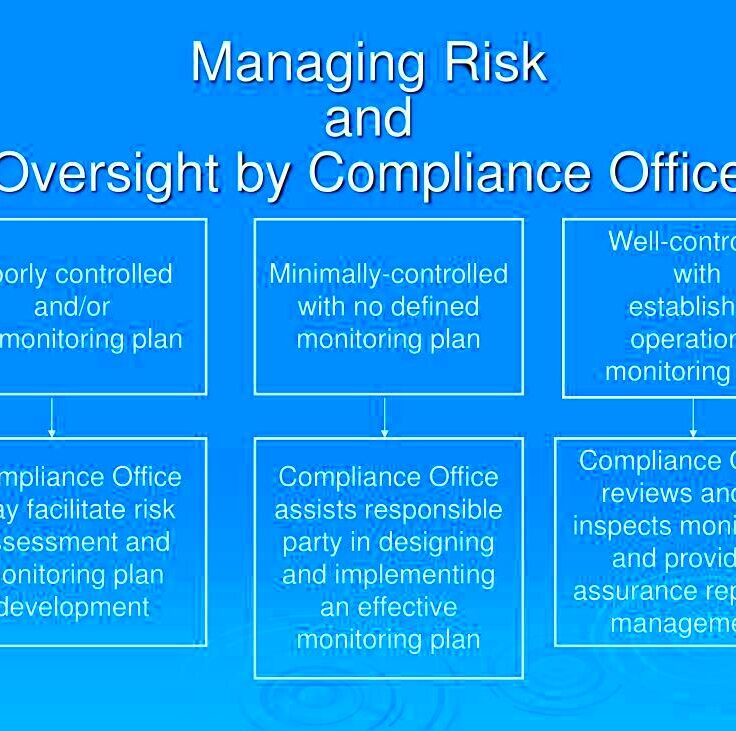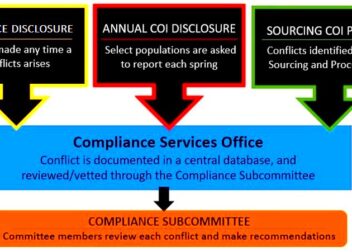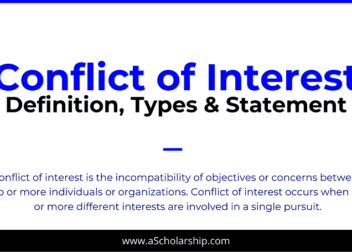Massachusetts Conflict of Interest Compliance Guidelines
The aim of conflict of interest laws in Massachusetts is to make sure that public officials always do their jobs with the citizenry’s best interests at heart. Such laws aim at preventing instances where an individual’s private interests may have undue effect on the discharge of his duties as an official. This is essential for every government worker, elected leader and other persons employed in public service to know so as to follow them and avoid losing people’s confidence.
This paper talks about main principles of the laws regulating conflicts of interest in Massachusettsthat are fundamental in their compliance rules, duties of reporting and disclosure.
Key Compliance Requirements for Public Officials
It is the expectation of Massachusetts that its public officials abide by stringent guidelines so as to steer clear of conflict of interest scenarios. Some of the most important rules are:
- Prohibited Actions: Public officials cannot participate in decisions where they or their immediate family members have a financial interest. This includes voting, signing contracts, or making rulings on matters that affect personal finances.
- Gift Restrictions: Public officials are generally prohibited from accepting gifts of substantial value from individuals or organizations that may be affected by their official duties.
- Confidential Information: Officials must not use confidential information gained through their position for personal gain or to assist others in doing so.
There are numerous guidelines governing public officials’ behavior as indicated by this brief summary. Noncompliance with these rules can attract tough sanctions which may involve a fine, loss of one’s job or even prosecution.
Disclosure and Reporting Obligations
According to the Massachusetts state law, public officials are required to make known any impending clashes of interest and in some instances to remove themselves from the process of decision-making. Here’s what is usually included:
- Financial Disclosures: Public officials must file financial disclosure forms annually, outlining their income, assets, and any potential conflicts.
- Written Statements: If a conflict arises, officials are often required to file a written statement explaining the conflict and their plan to avoid improper influence.
- Recusal Procedures: In cases where a conflict is unavoidable, the official must formally recuse themselves from participating in the matter.
Not complying with these reporting obligations may lead to civil and criminal penalties. The purpose is openness, so that the public can have trust in the behavior of honest officials.
Consequences of Noncompliance with Conflict of Interest Laws
If Massachusetts’ conflict of interest laws are violated by public officials, heavy penalties may follow. This is done to ensure honest public service and that officials put the public first before their selfish motives. Depending on how serious it was, one could face both civil and criminal charges due to noncompliance with this law.
Consequences of breaching laws on conflicts of interest: Few of them include;
- Fines: Violating these laws can result in hefty fines, sometimes up to $10,000 or more, depending on the nature of the infraction.
- Loss of Employment: Public officials who fail to follow the rules may lose their jobs. This is particularly true for serious or repeated offenses.
- Criminal Charges: In severe cases, noncompliance may lead to criminal charges. This can result in imprisonment and a permanent criminal record.
- Reputation Damage: Even if legal penalties are avoided, an official’s reputation may suffer long-term harm, damaging future career prospects.
These laws are enforced by the Massachusetts State Ethics Commission. They have the authority to investigate claims and impose disciplinary action. Therefore, it is crucial for public officials to be always vigilant so that they may avoid any conflicts which would lead to serious consequences.
How to Avoid Potential Conflicts of Interest
Continual awareness and a commitment to transparency are necessary for preventing conflicts of interest. Public officials can take proactive measures to decrease chances of being in situations that jeopardize their ethical duties. The following are tips on how to avoid conflicts in general:
- Regular Self-Assessment: Continuously evaluate your personal interests and how they intersect with your public duties. If there’s any overlap, consider recusing yourself from relevant decisions.
- Consult with Ethics Advisors: When in doubt, speak with an ethics advisor or legal counsel to ensure you’re not walking into a conflict of interest situation.
- Full Disclosure: Transparency is key. Disclose any financial, personal, or family relationships that may appear to affect your decision-making, even if you think they are minor.
- Stay Educated: Laws and regulations change over time. Regularly reviewing compliance guidelines and attending training programs can help you stay up-to-date on your obligations.
In so doing, public functionaries will be able to cement public confidence into themselves and have their deeds beyond suspicion.
Training and Educational Resources for Compliance
By giving adequate instruction and education, one can make sure that conflict of interest regulation is followed. Several resourceful means are provided in Massachusetts to make sure the public office holders are fully aware of the state’s various ethical laws in existence.
Below mentioned are a few noteworthy resources and training programs:
- Online Training Programs: The Massachusetts State Ethics Commission provides online training courses that cover the basics of conflict of interest laws. These courses are often mandatory for new employees and can be completed at your own pace.
- In-Person Workshops: Some agencies may offer in-person workshops or seminars that provide detailed information on avoiding conflicts of interest. These sessions often feature case studies and real-world examples.
- Ethics Commission Resources: The Ethics Commission’s website features a wealth of resources, including guides, FAQs, and downloadable forms for disclosures and reports.
- Consultation Services: Public officials can seek one-on-one advice from ethics experts. This is especially helpful when dealing with complex or unique situations.
Taking part in training sessions and continuing education can aid in upholding compliance requirements and avoiding possible legal ramifications as a public servant. Also, when you know much about current issues, you will be able to deal with complex ethical dilemmas better.
Role of the Massachusetts State Ethics Commission
The state ethics commission for Massachusetts has a significant role in guaranteeing that government officials observe laws relating to conflicts of interest. The organization acts as the state’s guardian by monitoring compliance and offering advice to prevent ethical lapses. Transparency and equality in public service is one of the commission’s chief objectives.
Below are some main roles performed by the State Ethics Commission:
- Investigating Complaints: The commission investigates allegations of unethical behavior, including conflicts of interest. Complaints can come from the public, government agencies, or whistleblowers within the system.
- Enforcement Actions: If the commission finds evidence of wrongdoing, it has the authority to impose penalties. These can include fines, disciplinary action, or even referring cases for criminal prosecution.
- Providing Advisory Opinions: Public officials can seek advisory opinions from the commission if they’re unsure about potential conflicts of interest. These opinions offer valuable guidance and can help officials avoid legal issues down the road.
- Education and Training: The commission offers various educational resources, including online training programs, workshops, and guidelines to ensure public officials understand their ethical obligations.
MA conflict of interest laws are available for cash so public employees use that as a resource on their own to make sure they understand what is expected from them as far as ethical behavior is concerned. They can avoid major problems by using the commission.
FAQ About Conflict of Interest Compliance in Massachusetts
Navigating the intricacies of conflict of interest legislation may pose a challenge, particularly for newly elected officials. To shed light on these widespread queries, we present some questions frequently asked:
- What is considered a conflict of interest?
A conflict of interest arises when a public official’s personal interests could improperly influence their official actions. This includes financial interests, family relationships, or connections to private organizations. - What happens if I unintentionally violate conflict of interest laws?
Unintentional violations may still result in penalties, but the severity will depend on the situation. It’s essential to consult the State Ethics Commission if you believe you may have violated these laws. - Do I need to disclose every financial interest I have?
Yes, public officials must disclose any financial interest that could potentially create a conflict with their official duties. This helps maintain transparency and public trust. - How often do I need to complete ethics training?
Most public employees are required to complete ethics training every two years. However, it’s a good idea to stay updated regularly as laws and regulations can change. - Can I accept small gifts from someone affected by my decisions?
No. Public officials in Massachusetts are generally prohibited from accepting gifts of any substantial value from anyone affected by their official actions, to prevent potential influence.
This is more like what would have been expected from an understanding of Massachusetts conflict of interest laws. For that reason people should turn to official sources for more information.
Conclusion
Conflict of interest laws in Massachusetts are essential to ensuring that trust and integrity are preserved in public service. Public officials should be careful not to allow their private interests to conflict with their public responsibilities. Compliance guidelines should be observed, potential conflicts revealed, and regular training undergone so as to protect the careers of such employees as well as ensure that the people have confidence in the government.
Massachusetts State Ethics Commission is a significant resource which provides directions, education and enforcement so as to assist public officials remain legal. It is crucial for those working in public service to know and comply with the principle.


